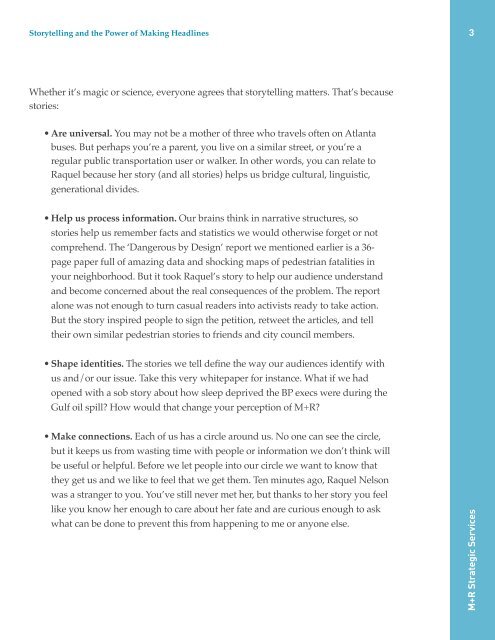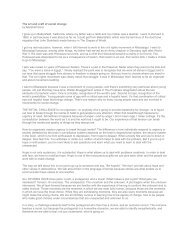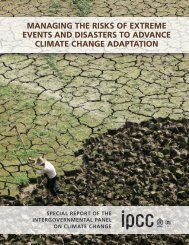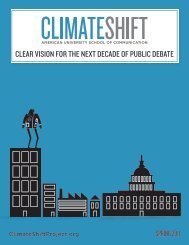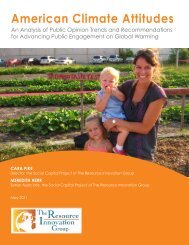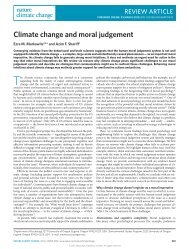Storytelling and the Power of Making Headlines - M+R Research ...
Storytelling and the Power of Making Headlines - M+R Research ...
Storytelling and the Power of Making Headlines - M+R Research ...
Create successful ePaper yourself
Turn your PDF publications into a flip-book with our unique Google optimized e-Paper software.
<strong>Storytelling</strong> <strong>and</strong> <strong>the</strong> <strong>Power</strong> <strong>of</strong> <strong>Making</strong> <strong>Headlines</strong>3Whe<strong>the</strong>r it’s magic or science, everyone agrees that storytelling matters. That’s becausestories:• Are universal. You may not be a mo<strong>the</strong>r <strong>of</strong> three who travels <strong>of</strong>ten on Atlantabuses. But perhaps you’re a parent, you live on a similar street, or you’re aregular public transportation user or walker. In o<strong>the</strong>r words, you can relate toRaquel because her story (<strong>and</strong> all stories) helps us bridge cultural, linguistic,generational divides.• Help us process information. Our brains think in narrative structures, sostories help us remember facts <strong>and</strong> statistics we would o<strong>the</strong>rwise forget or notcomprehend. The ‘Dangerous by Design’ report we mentioned earlier is a 36-page paper full <strong>of</strong> amazing data <strong>and</strong> shocking maps <strong>of</strong> pedestrian fatalities inyour neighborhood. But it took Raquel’s story to help our audience underst<strong>and</strong><strong>and</strong> become concerned about <strong>the</strong> real consequences <strong>of</strong> <strong>the</strong> problem. The reportalone was not enough to turn casual readers into activists ready to take action.But <strong>the</strong> story inspired people to sign <strong>the</strong> petition, retweet <strong>the</strong> articles, <strong>and</strong> tell<strong>the</strong>ir own similar pedestrian stories to friends <strong>and</strong> city council members.• Shape identities. The stories we tell define <strong>the</strong> way our audiences identify withus <strong>and</strong>/or our issue. Take this very whitepaper for instance. What if we hadopened with a sob story about how sleep deprived <strong>the</strong> BP execs were during <strong>the</strong>Gulf oil spill? How would that change your perception <strong>of</strong> <strong>M+R</strong>?• Make connections. Each <strong>of</strong> us has a circle around us. No one can see <strong>the</strong> circle,but it keeps us from wasting time with people or information we don’t think willbe useful or helpful. Before we let people into our circle we want to know that<strong>the</strong>y get us <strong>and</strong> we like to feel that we get <strong>the</strong>m. Ten minutes ago, Raquel Nelsonwas a stranger to you. You’ve still never met her, but thanks to her story you feellike you know her enough to care about her fate <strong>and</strong> are curious enough to askwhat can be done to prevent this from happening to me or anyone else.<strong>M+R</strong> Strategic Services


